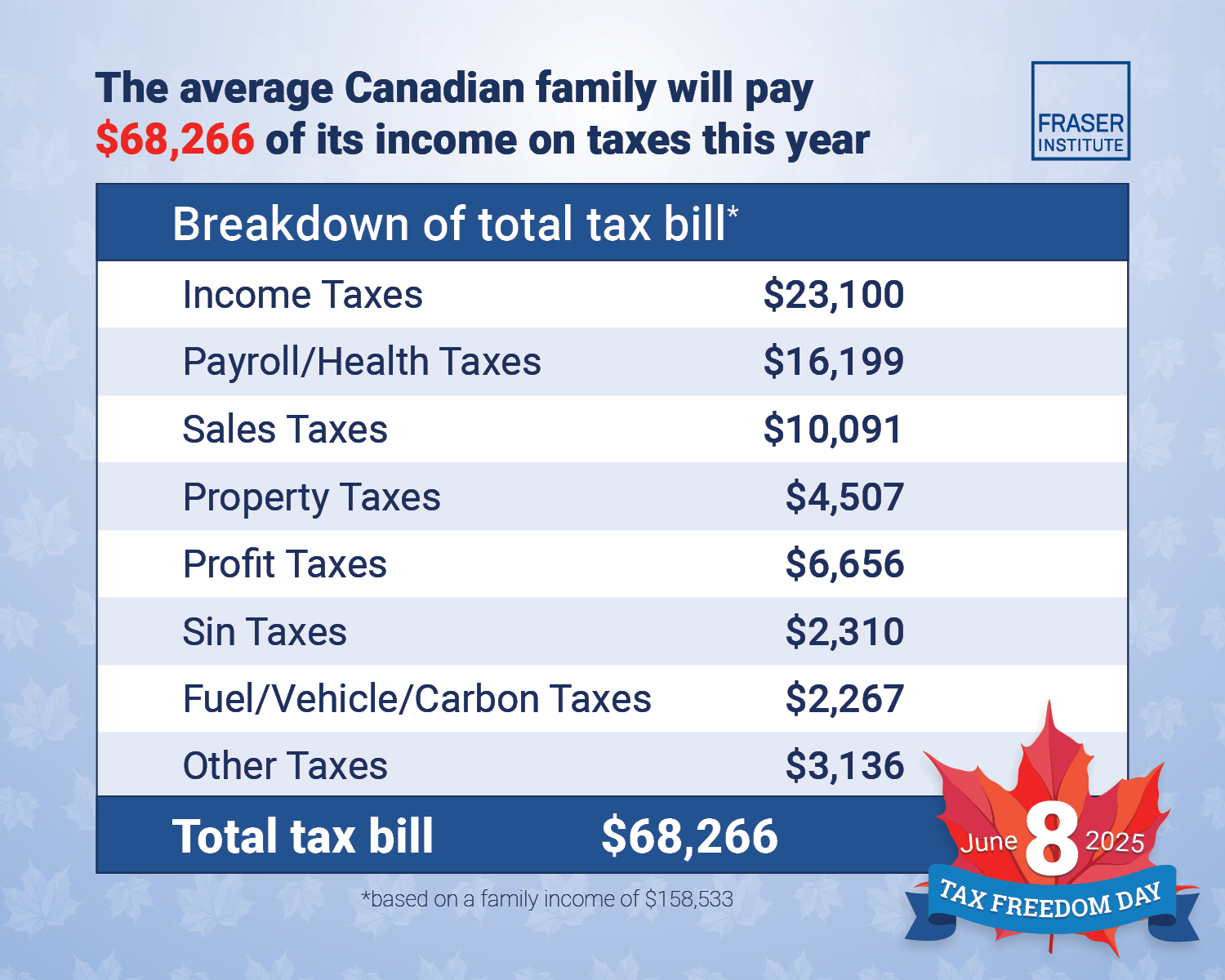Housing affordability is another area where Ottawa is not expected to achieve

If Canadians had to pay all their annual taxes before anything else, this Sunday they would finally have money to spend on themselves.
It’s Tax Freedom Day, as calculated by the Fraser Institute and based on taxes paid across all tiers of government, and it comes one day earlier than in 2024. But that still means more than five months of income goes to governments, an average of $68,266 paid for income taxes, payroll taxes, GST, health taxes, fuel taxes, and more.
“If Canadians paid all their taxes up front, they would work the first 158 days of this year before bringing any money home for themselves and their families,” said Jake Fuss, director of fiscal studies at the Fraser Institute. “Canadians need to decide for themselves whether they are getting their money’s worth when it comes to how governments are spending their tax dollars.”
Based on a household income of $158,533, the calculations show that 43.1% is paid out in taxes and with a projected budget deficit of $90 billion in federal and provincial benefits this year, things could worsen in future years.

The level of spending on government operations is not something that most Canadians expect to improve, according to a separate survey by the Angus Reid Institute.
It reveals that 69% of respondents say they are not confident that the Liberal government will reduce spending with just 24% saying they will. Three quarters are not confident in the government improving housing affordability (versus 21% who say it will), and 44% are not confident in the government boosting investment in Canadian business (43% say it will).



